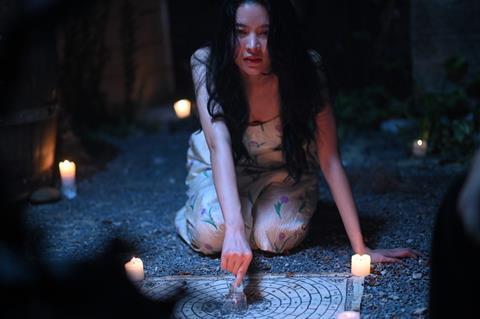
The inaugural Kingdom of Bhutan International Film Festival (KBIFF) launches this week, aiming to build a bridge between filmmaking talent in the small country nestled in the Himalayas and the Western world.
The first edition has a modest line-up of eight features, which are set to screen from September 19-23, but combine a selection of local and international titles that will each be screened once and are free to attend.
The programme will also include a series of masterclasses delivered by UK producer Charles Steel whose credits include The Last King of Scotland and Netflix series Top Boy; Indian film composer Shantanu Moitra; and Bhutan-born Indian filmmaker Onir.
“A goal of the event is to bring producers and directors together so they will see it is possible to anchor their stories in Bhutan – or use it as a backdrop,” says Mel Gee Henderson, a co-founder of the Bhutan Film Institute, which launched in September 2023 and has organised KBIFF.
“I want it to be an eye-opener for the Western world and other countries in Asia to realise the plethora of talent here. It will also be a bespoke Bhutan adventure for our guests, and if you do something good on the roof of the world it ripples down to other parts of the world.”
Local titles include Pawo Choyning Dorji’s The Monk And The Gun, which went on a successful festival run after premiering at last year’s Telluride and Toronto, making the Oscars shortlist as the country’s third ever submission.
Further Bhutanese films in the line-up are Sonam R Kuenfel’s Boed Garp Sonam Drugyel, a period tale of a warrior torn between love and duty; Karma Jerry’s Aum Penjo, about a transgender woman facing societal prejudice; and Sonam Yagzom’s 30-minute documentary Journey of Bhutanese Cinema.
International features include Thai psychological thriller Don’t Sleep by Lee Thongkham, which will receive its world premiere at KBIFF; David Petersen’s US documentary Lift, following children from tough backgrounds who receive dance scholarships in New York; and US-Japan boxing drama In Full Bloom by Reza Ghassemi and Adam VillaSeñor.
Bhutan’s Queen Mother Gyalyum Tshering Yangdon Wangchuck will preside over the opening night gala on Thursday (September 19), which is set to be attended by Prime Minister Tshering Tobgay and around 60 international guests.
The festival will also host a short film competition aimed at local talent, the winners of which will be announced at a closing ceremony.
The 400-seat Lugar Theatre in the capital of Thimphu is the principal venue but the opening will be held in the town of Paro, west of the city.
KBIFF is also hoped to spark new life in the local film industry, which has struggled in the wake of the Covid-19 pandemic and has seen the number of films produced in the country decline from 25-30 annually to around six a year.
“The majority of Bhutanese films screened in theatres are commercial dramas of mixed genre… inspired by folk legends and historical narratives,” says Tshering Phuntsho, executive director and co-founder of the Bhutan Film Institute.
Phuntsho, who is also an actor and filmmaker, highlighted local independent directors that have make a name on the international stage such as Dorji, who was Oscar-nominated for Lunana: A Yak in the Classroom; Tashi Gyeltshen, whose drama The Red Phallus won the Fipresci award at Busan in 2018; Dechen Roder, director of mystery drama Honeygiver Among the Dogs, which played at the Berlinale; and Buddhist lama and filmmaker Khyentse Norbu of The Cup.
“They are more experimental in their storytelling,” says Phuntsho. “Their films are arthouse in nature, exploring deeper themes of the Buddhist ethos and values, identity, social issues, impact of modernisation on our culture and way of life. Their films are targeted at international film festivals and global markets and the production cost are significantly higher than local commercial films.”
Fellow BFI co-founder Henderson, who is from the US and is also a travel show producer, wants to continue developing such talent in the country. On her third visit to Bhutan in late 2022, she discovered that one of her local crew learned his craft by studying YouTube tutorials for five years because Bhutan does not have a film school.
She explains how that was the spark for the establishment of the BFI and ultimately KBIFF, adding: “Our mission [at the institute] is to educate, inspire and pave the way for young dreamers like him.”

























No comments yet